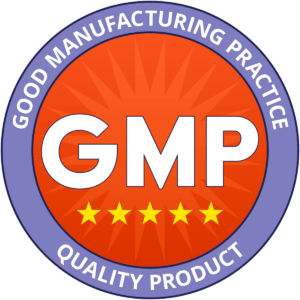Good manufacturing practices (GMPs) are minimum required guidelines that a manufacturer must meet to assure that their products are consistently high in quality and work for their intended use. GMPs are part of a quality system covering the manufacture and testing of pharmaceutical ingredients, foods, pharmaceutical products, diagnostics, and medical devices. GMPs help ensure that a product was produced under industry-standard conditions.

Good manufacturing practices (GMPs) focus on five critical factors that are sometimes referred to as the 5 P’s of GMP—people, premises, processes, products, and procedures—to assure consistent product quality and safety.
*Source: https://www.vitafoodsinsights.com
Good manufacturing practice (GMP) is a system of processes, procedures, and documentation that assures that manufacturing products like food, cosmetics, and pharmaceuticals are consistently produced and managed according to established quality standards. GMP can reduce losses and waste, as well as avoid recalls, seizures, penalties, and jail time. GMPs analyze and cover every part of the manufacturing process to protect products from dangers such as cross-contamination, adulteration, and mislabeling, which can be disastrous.
*Source: https://safetyculture.com
GMP requirements necessitate a quality-oriented approach to manufacturing, allowing businesses to reduce or eliminate contamination, mix-ups, and errors. This safeguards the customer against buying a product that is ineffective or even hazardous. Failure to follow GMP laws can lead to harsh repercussions such as product recalls, seizures, fines, and jail time. Record keeping, employee qualifications, sanitation, cleanliness, equipment verification, process validation, and complaint handling are all covered by GMP rules.
*Source: https://ispe.org
GMP includes every area of production, from raw materials, facilities, and equipment to employee training and personal hygiene. Each process that has the potential to affect the completed product’s quality requires detailed, written procedures.
*Source: https://www.who.int
Learn how to streamline manufacturing processes and supply chain management to bring products to market faster by reading our best practices.
